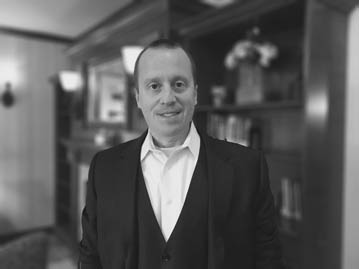
You arrive late to work. (Just a few minutes…)
You then get your coffee. And then socialize with others about their weekend.
You check the news. And then surf your inbox for 45 minutes.
Soon, it’s lunch time.
Wait… you just got here.
You might need to ask, “How many hours are you actually working in your day?”
Late to Work, and Late to Start Work
I see it in many office cultures. People straggle in 20–30 minutes late into the workday. They then spend another 30 minutes getting started.
They get their coffee. They socialize with every other late straggler. They check the news before they pull out any work. And then they surf their email inbox.
Suddenly, it is almost lunch time and they start making lunch plans with other co-workers.
Does this sound like your work day?
Wasting Time at Work
How much time are you actually working in your workday?
You may think from the last section that I am looking for some clockwork, military-like office that runs by strict discipline.
Not really. In fact, most truly creative work requires lots of unbounded free-time.
The most productive companies are those that reward results instead of mere activity. They often have loose schedules and allow their workers to work in the ways they work best.
They don’t stay in the office for the sake of clocking time, sending emails, or having meaningless meetings. They allow their workers to get their work done…. and then get out of the office.
However, many workplaces don’t work this way. (I guess you could say they don’t really work at all…)
Employees are expected to put in long workdays regardless of the workload. And success is often measured by hours instead of actual progress. Long days for the sake of long hours.
But, what is actually getting done during these long workdays?
- Most workers waste upwards of 2 hours per day at work
- They spend up to a third of their time in email
- And even more time in meetings.
This busyness can be a real problem. In fact, many companies mistake busyness with productivity.
Even more worrisome are those that are in denial about wasting time at work. (Sorry, but talking sports doesn’t count as work. Nor does surfing LinkedIn. Or making up stories about the last place you worked…)
Get Your Work Done First
If you find yourself constantly complaining you have too much to do, or you never get out of work on time, you need to ask, “How many hours am I actually working in my workday?”
You might find that you are spending more time avoiding work than doing it.
Get your work done first. Then, you can socialize all you want.
You may even be able to reclaim your personal life or spend time with your family and friends.
Question: How many hours per day do people actually work in your workplace? You can leave a comment by clicking here. I am the author of Time Management Ninja and help individuals and companies reclaim their time to be more productive. As well, I am the author of the book
I am the author of Time Management Ninja and help individuals and companies reclaim their time to be more productive. As well, I am the author of the book 

Witnessed this in the office environments I’ve worked with. There are always social butterflies that are part of the cliques. These people are usually very confident about their social skill and in-office politics that gets them through the day, for years on end.
This reality is sometimes brining the morale of the whole office down, as other people see it, and start to wonder, why are they putting in the long hours, and why are there preferential treatments included.
And that is a good legitimate question from them. Which is the very reason why people start jumping ships, and start looking for new jobs. Often times it’s much better retaining an employee with nurturing office environment, than it is by high compensation.
Employees that are striving to make more, will leave once they find something that pays more. Good environment will strike a nice work-life balance, where an employee will be quite happy, and a promise of a higher wage, won’t make him jump ships.
This continuity in employee retention is critical for the company, because the knowledge capital stays in house. The longer the employee works for the company, the more value he is able to contribute.
I love this one Craig! In many cases, the equivalent output can be delivered in half a workday! Something for many managers to think about when they seek to hire more people.
This is similar to what Timothy Ferriss said in the 4 Hour Workweek. Bang out your work and move on!
In my last workplace I attended less meetings than other managers but still found 50 hours was the average clocked hours. Productive hours – probably a lot less than 50. A downside of this wasted time is that even if you get your stuff done on time you might not get the rewards. If the whole organisation is inefficient with lots of meetings and email then the reward pot will be based on that not you. For many of us working for ourselves will force efficiency and give a better link between productivity and reward.
I agree that it is too easy to get wrapped up office banter, politics, and exhaustive meetings that go nowhere. That’s why I like the Agile process — it provides transparency and a high level of communication while reducing the tendency to sit in exhaustive meetings that have no goal. Agile is a software development technique but I’ve used it for other activities very successfully.
Thanks Craig for bringing light to this.
Steve, http://www.aMemoryJog.com